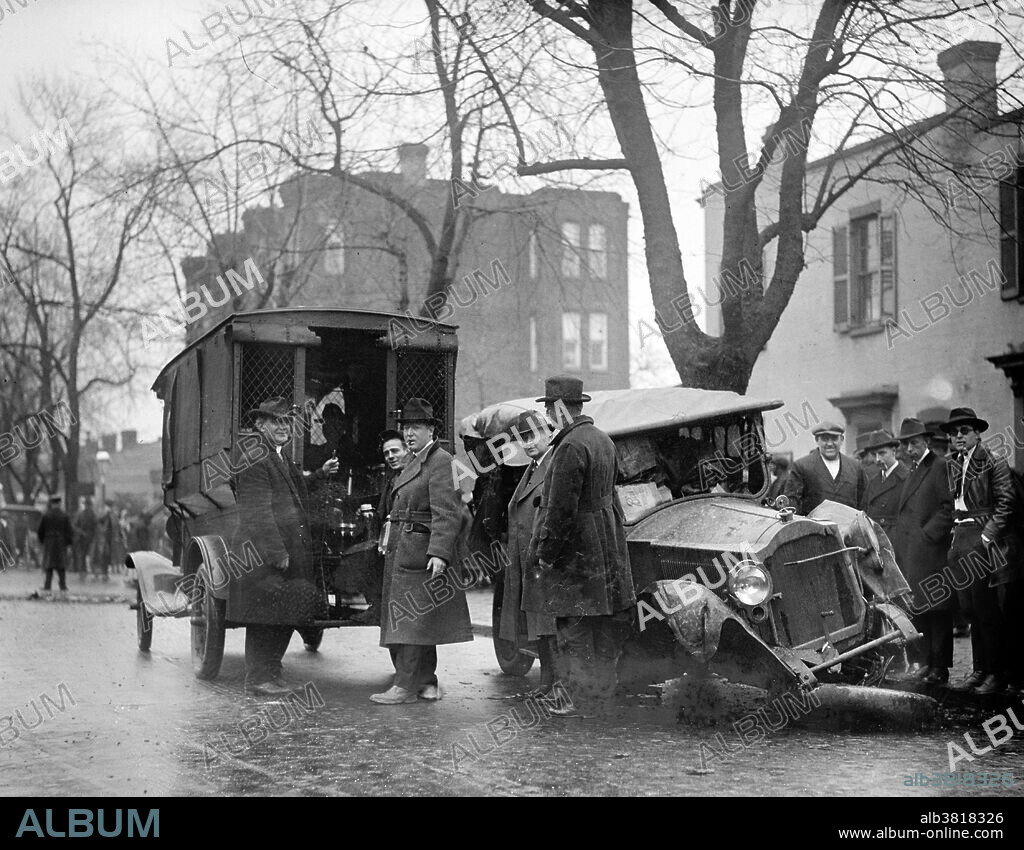alb3818326
Bootlegger's Wreck, 1922

|
Add to another lightbox |
|
Add to another lightbox |



Title:
Bootlegger's Wreck, 1922
Caption:
Bootlegger's wreck. Prohibition in the United States was a nationwide Constitutional ban on the sale, production, importation, and transportation of alcoholic beverages that remained in place from 1920 to 1933. It was promoted by dry crusaders movement, led by rural Protestants and social Progressives in the Democratic and Republican parties, and was coordinated by the Anti-Saloon League. Prohibition was mandated under the Eighteenth Amendment to the U.S. Constitution. Enabling legislation, known as the Volstead Act, set down the rules for enforcing the ban and defined the types of alcoholic beverages that were prohibited. Private ownership and consumption of alcohol was not made illegal under federal law; however, in many areas local laws were more strict, with some states banning possession outright. Prohibition supporters, called drys, presented it as a victory for public morals and health. Anti-prohibitionists, known as wets, criticized the alcohol ban as an intrusion of mainly rural Protestant ideals on a central aspect of urban, immigrant, and Catholic life. Nationwide Prohibition ended with the ratification of the Twenty-first Amendment, which repealed the Eighteenth Amendment, on December 5, 1933. Photographed by the National Photo Company January 21, 1922.
Credit:
Album / LOC/Science Source
Releases:
Model: No - Property: No
Rights questions?
Rights questions?
Image size:
4500 x 3503 px | 45.1 MB
Print size:
38.1 x 29.7 cm | 15.0 x 11.7 in (300 dpi)
Keywords:
18TH AMENDMENT • 1920S • 1922 • 20 XX TWENTIETH CENTURY • 20TH CENTURY • ALCOHOL • ALCOHOLIC BEVERAGES • ALCOHOLIC DRINKS • ALCOHOLIC • AMERICA • AMERICAN • AUTO • AUTOMOBILE • BOOTLEG • BOOTLEGGER • BOOZE • BW • CAR • CONSTITUTIONAL • CRASH • EIGHTEENTH AMENDMENT • FÉDÉRAL • GOVERNMENT • HISTORIC • HISTORICAL • HISTORY • ILLEGAL • JANUARY 21 • JANUARY 21ST • JAZZ AGE • LAW • LEGAL • LIQUEUR • LIQUOR • MOONSHINE • MOONSHINER • NATIONAL PHOTO COMPANY • PHOTO • PHOTOGRAPH • PROHIBITION ERA • PROHIBITION • RUM RUNNER • RUMRUNNER • SOCIAL MOVEMENT • SPIRTS • TEMPERANCE MOVEMENT • TEMPERANCE • TWENTIETH CENTURY • UNITED STATES • US • USA • VEHICLE • VOLSTEAD ACT • WHISKEY PEDDLER • WHISKY PEDDLER • WRECK
 Pinterest
Pinterest Twitter
Twitter Facebook
Facebook Copy link
Copy link Email
Email

